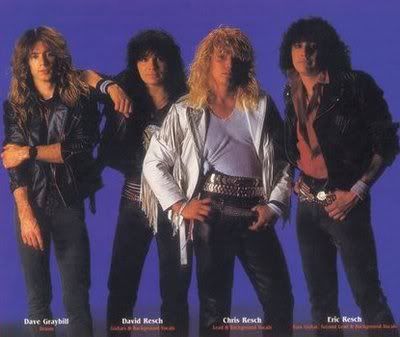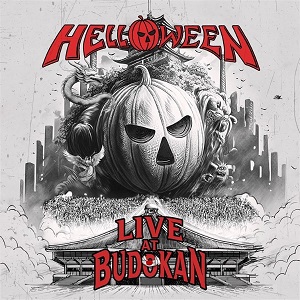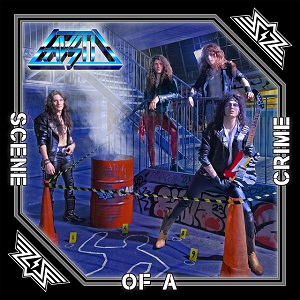PANDEMONIUM - “I Can See RUSH From My House!”
August 30, 2011, 13 years ago
That’s, of course, what a young Sarah Palin might have squealed had she heard Alaska’s only metal band rocking out in rehearsals or around the bars of Fairbanks. But she’d be wrong (as she is about so many things) for this particular din would have been coming from PANDEMONIUM, a band destined to be one of Metal Blade’s early signings, kicking up quite the storm on the LA scene en route to three albums of ‘80s metal, not quite hair and not quite way heavier that hair.
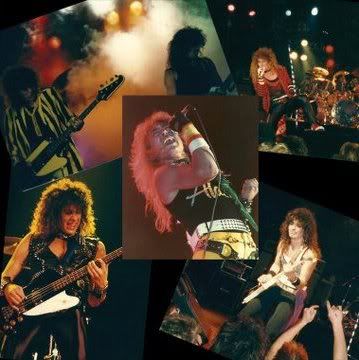
Why am I telling you all this and trying to make lame jokes at the same time? Well, it’s ‘cos the band’s three albums, Heavy Metal Soldiers, Hole In The Sky and The Kill have all been reissued by Retrospect Records where, says guitarist David Resch, they are running a deal right now allowing you to pick up all three of the band’s remastered reissues (with bonus tracks) for $30.
“Well, the first album, was done really, really quickly,” muses Resch, asked to get retrospective himself and describe what he, bassist brother Eric, deceased brother and vocalist Chris, and the three records’ three different drummers were trying to achieve. “God, we had a budget for like four or five days in the studio. It was five eight-hour days to record and mix an album, which is really pushing it. Although BLACK SABBATH did it in three days (laughs). But the first album, we were a little disappointed in because our live sound was a lot heavier. We grew up on Sabbath - Tony Iommi is my favourite guitarist. I mean, just loved Black Sabbath - still do to this day. And we had conflict in the band. I came up with these really heavy Iommi-styled riffs, and my brother Eric, who was the music co-writer, he was a little bit more poppy, into DOKKEN and stuff, so we were always having a conflict. I would come up with these big, Sabbath-heavy riffs, and Eric would graft these sort of poppy choruses on them and we just used to argue like crazy about that (laughs).”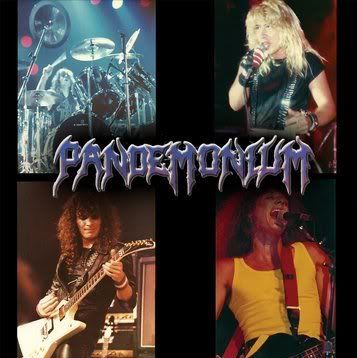
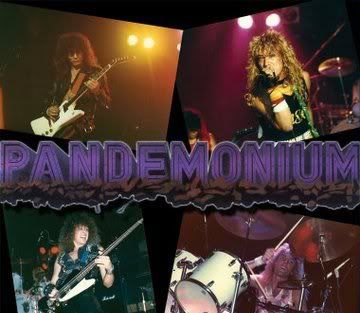
Fame beyond the strip was not to be, despite a next phase where the band indeed were really making a splash in their adopted LA homeland…
“You know, in the early days of LA, ‘83, ‘84, ‘85, we were one of the biggest draws in LA,” muses Resch. “And we were kind of known for having this huge army of a lot of female followers. I guess we were thought of as pretty boys was back then, and we never really liked that tag. And we made a real conscious effort to get heavier, and as the ‘80s moved on, we noticed we started to get a lot more male fans, and the big huge army of girls started to slip away. We were okay with that. We just want to play the music we liked. You know, interesting story, I don’t think I talk about in the liner notes, but one of POISON’s first gigs in LA was opening for us at the Troubadour. We had this huge army of girl fans, just tons of them, and they discovered Poison, and all of a sudden a lot of our loyal female fans became overnight huge Poison fans. We gave them a real leg up (laughs).”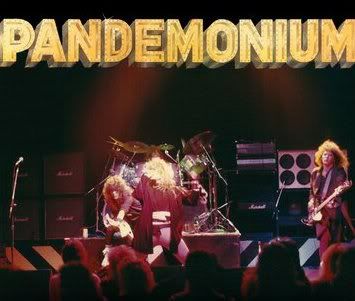
Despite brushes with the ladder’s next rung as it were, most notably interest from Geffen and various management companies around town, Pandemonium never got the breaks they were after, possibly because they patently refused to go hair metal.
“When the band broke up in ‘89, it’d got to the point where the whole hair metal scene just really disgusted us and we didn’t want to be a part of it,” explains Resch. “In the late ‘80s there, if you watch the videos from that era, some of those bands were just fucking horrible, and it got to be the big pay-to-play thing, where the promoters made bands buy tickets from them. We went from playing the Troubadour making $1000 a night for an hour-long show, to the point where we had three albums out and we had to purchase tickets from the promoter to play at the Roxy or Whiskey and Troubadour and sell them to, like, people you know. And there’s only so many times you can get your friends to pay to come see you play – it’s really demeaning. So the whole pay-to-play thing… There were too many bands in LA. There were literally thousands of bands so desperate for a gig that the promoters realized they could make the bands pay to play, and that’s what happened.”